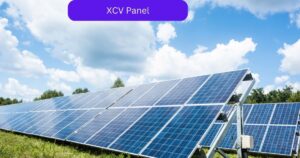RV water heaters play a crucial role in providing comfort on the road, ensuring a steady supply of hot water for various purposes. As RV enthusiasts know, the time it takes for an RV water heater to heat up can vary based on several factors. These factors, types of RV water heaters, and tips for quick heating enhance your overall RV experience.
Picture this: you’ve set up camp in a serene location, and the crisp air makes a hot shower incredibly appealing. As you turn on the RV water heater, you eagerly await the warmth, wondering just how quickly it will be ready for use. Understanding the heating time of your RV water heater can be the key to maximizing comfort during your travels.
The time it takes for an RV water heater to heat up varies based on several factors. The type of heater, the energy source (propane or electricity), and the initial temperature of the water all play crucial roles.
Use of RV Water Heaters
An RV water heater serves several important functions in a recreational vehicle (RV), making it an essential component for comfort and convenience during your travels. Here are some of its uses:
Hot Showers: One of the primary uses of an RV water heater is to provide hot water for showers. This is particularly appreciated after a long day of outdoor activities.
Cooking: Hot water is often needed for cooking purposes, whether it’s for boiling pasta, making a hot beverage, or washing fruits and vegetables.
Cleaning: Hot water is essential for cleaning tasks in an RV, such as washing dishes or cleaning surfaces. It helps to remove grease and sanitize your kitchenware and surfaces.
Laundry: If your RV is equipped with a washer/dryer, you’ll need hot water to wash your clothes.
Heating: In some RVs, the water heater is part of the heating system. The hot water from the heater is used to warm the air in the RV.
Remember, the efficiency and capacity of RV water heaters can vary, so it’s important to manage your hot water use to ensure it lasts for all your needs.
Factors Affecting Heating Time
Several external factors influence the heating time of RV water heaters. The type of heater, power source, ambient temperature, and altitude are among the variables that can impact how quickly your RV water heater reaches the desired temperature.
Types of RV Water Heaters

When it comes to RV water heaters, there are two main types: tankless and tank-based. Understanding the differences between these two options can help you make an informed decision when choosing the right type for your RV. Here’s a breakdown of the two types, along with their pros and cons:
Tankless RV Water Heaters
Also known as on-demand water heaters, these units heat water as it flows through the system.
Pros
Energy-efficient: Tankless water heaters only heat water when needed, reducing energy consumption compared to constantly heating a tank of water.
Unlimited hot water: With a tankless system, you won’t run out of hot water during your shower or other activities.
Space-saving: Tankless water heaters are compact and take up less space in your RV.
Cons
Higher upfront cost: Tankless units tend to be more expensive to purchase and install compared to tank-based water heaters.
Limited flow rate: Depending on the model, tankless water heaters may have a lower flow rate compared to tank-based units, which can affect the simultaneous use of multiple hot water outlets.
Higher sensitivity to water quality: Tankless systems may require more frequent maintenance and descaling if the water source has a high mineral content.
Tank-based RV Water Heaters

These units store and heat a specific amount of water in a tank, which is ready for use when needed.
Pros
Lower upfront cost: Tank-based water heaters are generally more affordable compared to tankless models.
Simplicity: These units have a straightforward design and are easy to operate.
Reliable performance: Tank-based systems provide a consistent flow of hot water, making them suitable for various RV activities.
Cons
Limited hot water capacity: The amount of hot water available is limited to the size of the tank, which can be an issue for longer showers or multiple consecutive uses.
Energy consumption: Tank-based water heaters continuously heat and maintain the temperature of the stored water, which can lead to higher energy usage.
Larger size: These units require more space in your RV due to the size of the tank.
Factors to consider when choosing the right type for your RV
Usage patterns: Consider how often and how much hot water you typically use during your RV trips. If you frequently need large amounts of hot water simultaneously, a tank-based system might be more suitable.
Space availability: Assess the available space in your RV. If space is limited, a tankless water heater could be a better fit due to its compact size.
Budget: Determine your budget for purchasing and installing an RV water heater. Tank-based units generally have a lower upfront cost, while tankless systems offer long-term energy savings.
Water quality: If you frequently encounter hard water or mineral-rich sources, a tankless system may require more maintenance and descaling.
By considering these factors and weighing the pros and cons of each type, you can make an informed decision on whether a tankless or tank-based RV water heater is the right choice for your specific needs and preferences.
Average Heating Time
While it’s challenging to provide an exact figure due to the numerous variables, we can discuss the average heating time for RV water heaters. This gives RV enthusiasts a general idea of what to expect when firing up their water heaters.
Tips for Quick Heating
To expedite the heating process, RV owners can implement certain tips and practices. From choosing the right time to heat water to optimizing the heater’s settings, these tips can significantly reduce the wait time.
Maintenance for Optimal Performance
Regular maintenance is essential to ensure your RV water heater operates efficiently. We’ll discuss simple yet effective maintenance practices that can prolong the lifespan of your water heater.
Choosing the Right Heater for Your Needs
Selecting the appropriate RV water heater involves considering various factors such as fuel type, size, and heating capacity. This section will guide readers in making an informed decision based on their specific needs.
Electric vs. Propane Heaters
RV water heaters commonly run on either electricity or propane. Exploring the pros and cons of each option helps RV owners decide which type aligns with their preferences and travel patterns.
Insulating Your RV Water Heater
Proper insulation is crucial to prevent heat loss and maintain water temperature. We’ll discuss insulating techniques to ensure that your RV water heater operates efficiently even in colder conditions.
Common Issues and Troubleshooting
RV water heaters are essential for a comfortable journey, providing hot water for various needs. However, like any appliance, they can encounter issues. Knowing how to troubleshoot common problems ensures a seamless and enjoyable travel experience.
No Hot Water
Possible Causes
- Faulty Pilot Light: The pilot light may be out or malfunctioning.
- Gas Supply Issues: Insufficient propane or gas supply.
Troubleshooting
- Check Pilot Light: Ensure the pilot light is lit. If not, relight following the manufacturer’s instructions.
- Verify Gas Supply: Confirm there’s an adequate supply of propane or gas.
Inadequate Hot Water
Possible Causes
- Sediment Buildup: Accumulation of sediment in the tank.
- Thermostat Issues: Incorrect thermostat settings.
Troubleshooting
- Flush the Tank: Periodically flush the tank to remove sediment.
- Adjust Thermostat: Verify and adjust thermostat settings as needed.
Leaking Water
Possible Causes
- Pressure Relief Valve Issues: Faulty or worn-out pressure relief valve.
- Internal Tank Damage: Cracks or damage to the water tank.
Troubleshooting
- Replace Relief Valve: If the relief valve is faulty, replace it.
- Inspect for Damage: Check for visible cracks or damage. If found, consult a professional.
Strange Odors
Possible Causes
- Anode Rod Corrosion: Corrosion of the anode rod.
- Bacterial Growth: Bacteria in the tank.
Troubleshooting
- Replace Anode Rod: Regularly replace the anode rod to prevent corrosion.
- Flush and Clean: Periodically flush and clean the tank to eliminate bacteria.
The pilot Light Won’t Stay Lit
Possible Causes
- Thermocouple Issues: Malfunctioning thermocouple.
- Gas Supply Issues: Insufficient gas flow.
Troubleshooting
- Check Thermocouple: Ensure the thermocouple is positioned correctly and replace if necessary.
- Verify Gas Supply: Confirm there’s adequate gas flow.
Unusual Noises
Possible Causes
- Sediment Buildup: Sediment causes overheating and noises.
- Expansion and Contraction: Normal expansion and contraction.
Troubleshooting
- Flush the Tank: Eliminate sediment by flushing the tank regularly.
- Normal Operation: Be aware that some expansion and contraction noises are normal.
Extended RV Water Heater Heating Time
For those traveling in colder climates, heating time can be affected. We’ll provide insights into considerations and precautions for RV enthusiasts embarking on cold-weather adventures.
Enhancing RV Water Heater Efficiency
Upgrading and modifying RV water heaters can enhance their overall efficiency. We’ll explore various modifications and improvements that can optimize heating performance.
| Aspect | Time to Heat | Factors Influencing | Efficiency Comparison |
| Heating Time | 10-30 mins | Type, Energy Source | Propane faster, electric efficient |
| Energy Source | Propane, Electric, Hybrid | Propane quicker | Propane is faster, electric efficient |
| Optimal Conditions | Type, Energy Source, Water Initial Temp | Propane for quick needs | Electric for energy efficiency |
| Overall Efficiency | Influenced by heater type | Balancing speed and energy use | Consider travel needs and preferences |
FAQs
Q: How long to heat a 6-gallon water heater?
A: The time varies, but around 30 minutes to an hour is typical.
Q: Is it OK to leave the RV water heater on?
A: Yes, but it’s advisable to turn it off during long periods of inactivity or when not needed.
Q: Why is my RV water heater not very hot?
A: Potential issues include thermostat settings, sediment buildup, or heating element problems.
Q: How long can you shower in an RV?
A: It depends on the water tank size, but generally, aim for shorter showers to conserve hot water.
Q: Do RV water heaters turn off automatically?
A: Yes, modern RV water heaters often have automatic shutoff features for safety and energy efficiency.
Conclusion
The heating time of an RV water heater depends on a multitude of factors. By understanding these factors, choosing the right type of heater, implementing tips for quick heating, and maintaining the unit properly, RV enthusiasts can ensure a reliable and efficient hot water supply during their travels.
Being aware of these common RV water heater issues and their troubleshooting steps equips RV owners to address problems promptly. Regular maintenance, periodic checks, and following manufacturer guidelines contribute to a reliable and efficient water heating system, ensuring a worry-free travel experience.











